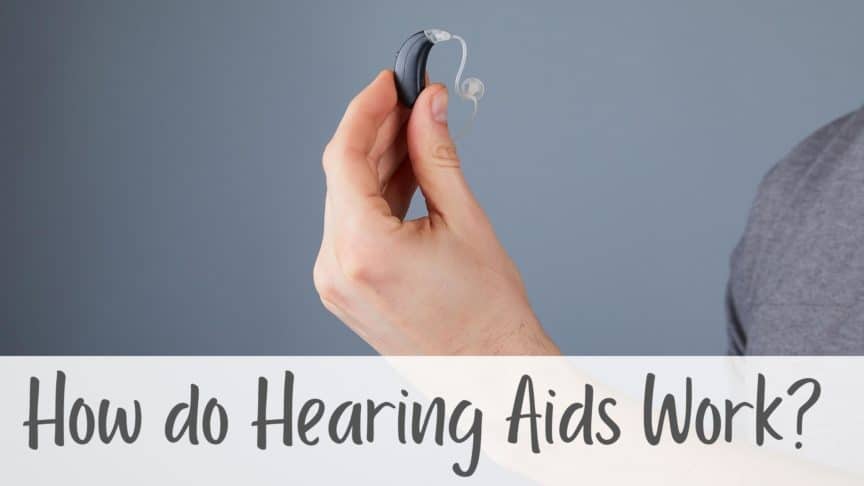It’s estimated that about 28.8 million U.S. adults could benefit from using hearing aids; however , only 20% of those who could benefit have ever tried them. Putting off treatment of hearing impairments can lead to rifts in your closest relationships, chronic depression, anxiety, cognitive decline, and a higher risk of accidents leading to hospitalization. The sooner you diagnose and treat a hearing loss the better chance you have of reversing these effects or preventing them together.
If you are considering hearing aids, it can be overwhelming. There are a lot of different styles and features to choose from. We are here to help you understand how hearing aids work and what models might be the best fit for you, to support you for the most enhanced hearing possible.
How do Hearing Aids Work?
The most common type of hearing loss, present in around 80% of cases is sensorineural. This occurs when the cells of the inner ear which send sound to the brain become damaged due to exposure to noise, infection, head impact, exposure to chemicals, or even old age. Not all sounds will disappear at once. Instead, hearing loss happens in stages – some people only have a mild case for their whole life, while others experience a slow decline. This means everyone needs a different level of amplification and depending on the severity more or less power.
A digital hearing aid can be programmed, based on your hearing test, to magnify only the sound vibration which you struggle to hear. The cells of your inner ear, which are still intact, can detect the larger vibrations and convert them into neural signals sent to the brain.
The Components of Hearing Aids
While the styles change and even vary from the older analog powered hearing aids to the more modern and precise digital powered hearing aids, all hearing aids still have the same four basic components: a microphone, an amplifier, a speaker, and a power source. The microphone picks up sounds and converts them into electrical signals using the amplifier, which increases the power of the signals and then sends them to the ear through a speaker. The entire device is powered by a replaceable or rechargeable battery.
How do Digital Hearing Aids Work?
While analog hearing aids of the past sent every part of a soundwave towards the ear, a digital signal is broken into micro-steps rather than a smooth wave. While you may not receive every aspect of a soundwave with digital, this is an instance where quantity isn’t quality. Analog hearing aids are prone to feedback and loss of nuisance in amplification. Digital hearing aids technology allows us to amplify only the frequencies you need to hear while leaving the rest to your existing hearing. This lends itself to a more organic listening experience. In addition, digital hearing aids are helpful in background sound suppression and helping to follow the conversation in front of you in a noisy room by using front-facing directional microphones. With digital hearing aids, you can enjoy hearing adaptability in many different listening environments for diverse hearing needs.
Are There Different Styles of Hearing Aids?
There are so many styles of hearing aids that for many it can be overwhelming to decide which style to choose from. Many offer more power for those with severe hearing loss, while others enjoy tiny discreet hearing aids, for those who aren’t ready to broadcast their hearing loss. Often the model of hearing aid you choose has a lot to do with your lifestyle, degree of hearing loss, and dexterity. For instance, tiny hearing aids can be hard to wear and adjust for hearing aid users of advanced age and medical issues such as arthritis.
Do You Suspect You Might Need a Hearing Aid?
If you suspect that you might need a hearing aid, you will first need to have a hearing evaluation. A hearing exam is not just a hearing test in which the threshold of sound you can detect is measured. It also includes an interview that will inform us of your lifestyle, hearing needs, family history, and more, as well as a physical exam of the ear canal to test for blockages in the ear canal. Most cases of hearing loss caused by loud noise exposure, advanced age, infection, and chemical exposure are permanent but a good candidate for hearing aids. We can review your options based on your hearing needs and ideal style and help you find the best fit for you.

